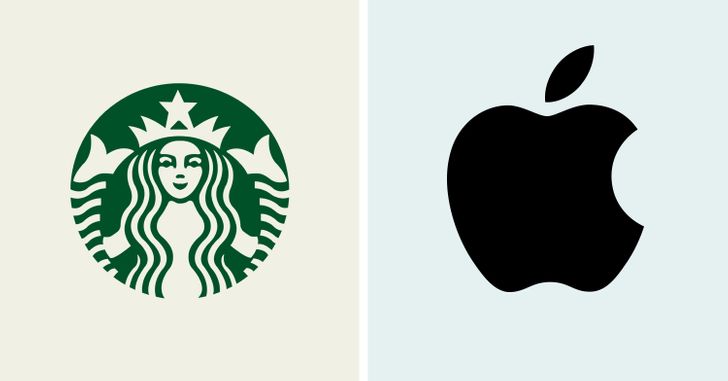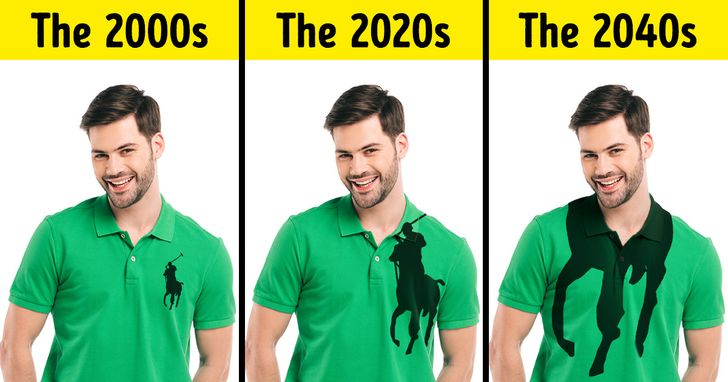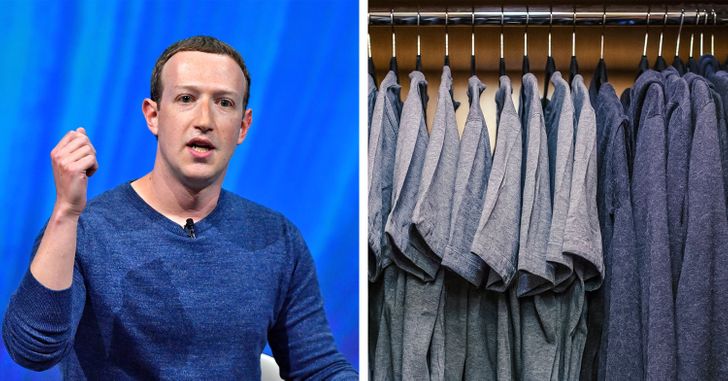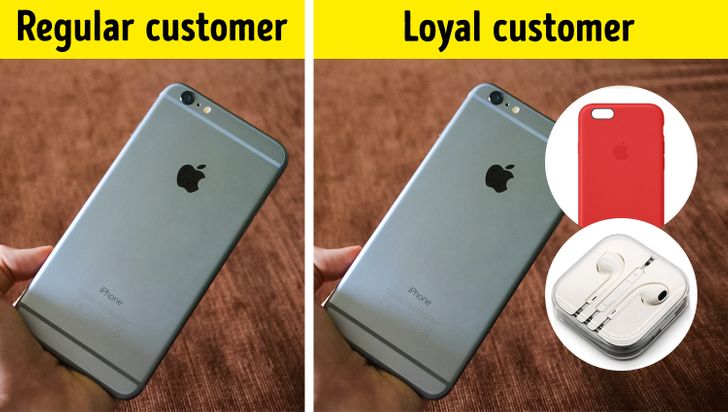Since they started hiding their logos, instagram bloggers or youtubers make " an honest review" about the famous brand that "wasn't paid", to keep the brand going. And the most sickening is that they claim they wasn't pain for it, but they lie. And many people believe them..
4 Reasons Why People Around the World Are Giving Up on Famous Brands
Marketers spend a lot of time perfecting things in order to make consumers love their brands. Their mission is to make you buy a trendy product without even thinking about it. Sales experts know that customers aren’t very rational when it comes to choosing between a brand they like and a brand they don’t know. This is why you buy love brands and don’t think about the consequences. But today, people around the world are giving up on buying products from famous brands.
Have you ever thought about why you want to buy a specific phone, wardrobe, or detergent? It’s really just about the function, taste, or other features. Bright Side figured out why we love some brands so much.
What love brands do you buy?
Big companies spend millions of dollars studying their customers. They conduct surveys, experiments, and study us step by step. Worldwide brands make it impossible for us to imagine our lives without them. Is it magic? Well, not exactly.
In the world of professional marketing, there is a term called love brand. It is a brand that most customers are loyal to. These are clothes, device, and furniture brands that we choose right away. Well, of course, it’s because customers are convinced that only this product will make them attractive, healthy, and successful. “Only this car makes you look like James Bond,” for example. “If you don’t buy this phone, you are in the past,” or “This coffee looks great in Instagram photos.”
How you get trapped by love brands
Worldwide love brands have several tricks that catch you and never let go.
- A simple story. A brand tells a story about itself and you recognize yourself in it. It makes you dream. It lets you be someone who you want to be: young, successful, fit, smart, and funny.
- Sensuality. A brand makes you feel strong emotions like anticipation or happiness because your phone is faster than your friend’s. A brand has a color, shape, and taste that makes you experience something before you even buy it.
- Intimacy. A customer builds a personal relationship with a brand and feels like this thing was made especially for them.
You buy a pair of jeans for $200 instead of $30 because they have a special tag on them. You stand in a line to get a coffee with your name on it. You spend hours assembling furniture that actually costs quite a lot. Does any of this sound familiar?
In the ’90s and the 2000s, people worshipped brands. So people who were all covered in different brands looked quite normal. But today, customers all around the world are giving up on buying famous brands. Here’s why.
1. People don’t want to become commercials.
A brand uses you as a commercial. You buy a T-shirt with the company’s logo and pay money to wear the clothes and advertise them as you walk around. It’s a bit illogical, don’t you think? Look at the photos of fashion bloggers on Instagram: handbags, cosmetics, phones — all these things are covered by brand names.
2. Customers don’t want to pay more.
Huge retailers like Guess and Crocs are closing down hundreds of stores just because people have stopped buying stuff. No-name products are replacing famous brands. Amazon caught onto this trend and started selling no-name clothing with comparable quality to famous brands. Why pay $50 for a T-shirt when you can buy the same one on Amazon for just $12?
Fashion is dying. Surveys show that modern people are giving up on clothes for special occasions and wear jeans and T-shirts more and more often. Mark Zuckerberg and Steve Jobs showed to the world that billionaires can wear regular clothes. And the world liked it.
There is a lot of cheap clothing out there and brands don’t really matter anymore. In the US, people gave up on brands not because they want to save money but because it’s their principle. Customers buy extremely cheap, basic clothing because the quality is the same and the logo doesn’t matter.
3. People realized that impressions are much more important than things.
Millennials don’t buy a lot of stuff anymore. Instead of filling their houses with useless junk, they travel, meet friends, and visit cultural events. And recently, scientists proved that it’s possible to buy happiness. But you shouldn’t spend your money on material things. Instead, spend it on creating positive impressions. Material things bring far less pleasure than a good weekend or visiting a concert can. Modern society is tired of “things” and is now looking for impressions.
4. Customers realize that brands sell extra stuff to them.
Have you ever noticed that love brands never sell you just one thing? So buying a super-advanced new phone is just the beginning. You will soon buy wireless headphones, a spare charger, a case, and a lot of other accessories you could easily live without. But now, these experts will sell a lot of useless things to you.
Love brands don’t sell things to you — they sell the name. And the name on the product doesn’t really matter because a loyal customer is sure about the quality of the product before they even buy it.
How do you know you’ve become a loyal customer? You will buy a thing from your favorite brand even without a discount. You don’t have a shopping list, you just stop by a favorite store for fun.
Some words of advice on how to give up love brands
- If you decide to stop wasting money, go here. This website estimates how ethical a brand is according to different parameters like how eco-friendly it is, if it uses cheap labor, and how tolerant it is.
- Don’t keep a lot of cheap clothes. Before you buy a product, try to think about if you will wear it at least 30 times. Experts on consumption recommend doing this.
- The authors of Happy Money: The Science of Smarter Spending recommend trying postponed purchasing. In other words, you save money now and spend it later. This way, you will have enough time to think about future purchase thoroughly and decide if you really need it. You will enjoy the anticipation and maybe later will realize you don’t even need this thing.
- Try to count how much money you spend on buying brand-name clothes, cosmetics, and electronics. Today, these things may seem important but tomorrow there will be even more trendy things you’ll want to buy. Maybe you should reconsider your entire approach.
Do you have clothes from famous brands in your wardrobe? Or do you not care about brands at all?
Comments
Brands constantly try to make you feel "special, upper class" if you buy them.
But there are some brands that are worth buying because they have high quality products, but not all their collections and items, but just some.
Other (like Zara, for example) don't have extremely good quality, but position themselves as "something good". Though, in my opinion it's just an unnecessary fast fashion
Agree with #4. I remember the times, when you got a phone, and in the phone box you could find everything needed: earplugs, chargers, phone case. Now it feels like they are going to stop pulling chargers in the phone boxes, and you will have to buy them apart..
I can agree on clothes part, but can't agree on cosmetics. Facial care important, and sometimes you can get a somewhat expensive product, because you know it will be good quality, with no toxic ingredients inside, and it will have a good effect on your face. In cosmetics big brands usually mean good quality. While good quality nice clothes can be found basically anywhere, cheap and expensive stores.
Every year mobile phone brands launches new phones which are just a rebrand. They add many superfluous features which makes them 'attractive '. People should be aware of such things as they have fallen into the trap of fast market.
Related Reads
14 Most Unusual Reasons Why Celebrities Turned Down Big Movie Roles

20+ Celebrities Who Were Born the Same Year, and Now We’re Taken Aback

11 Cartoons That Contain Moments Not Meant for Kids’ Eyes
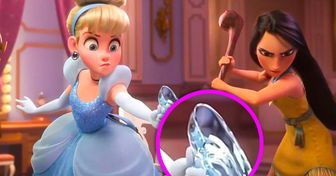
I’m Sick and Tired of My Friend Always Being Late, So I Taught Him a Lesson

“Screams Desperation,” Nicole Kidman, 56, Stuns in a Risqué Dress, But People Say It’s Not Age-Appropriate

Salma Hayek Celebrates “Bikini Day” in a String Swimsuit That Left Us Stunned

Zac Efron’s Appearance a Few Days Ago Leaves Fans Shocked and Worried

14 Times People Explained Movies So Badly It Was Hilarious

10 Beauty Standards Women Don’t Care About Anymore
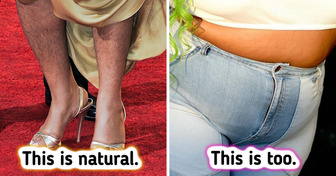
Model Lost Entire Lips in Pitbull Attack, And She Reflects on Her Recovering Journey

20+ Pictures That Will Make You Question What You Truly Saw

15 Stories About Our Favorite Celebs That Show How Stars Are Made, Not Born

